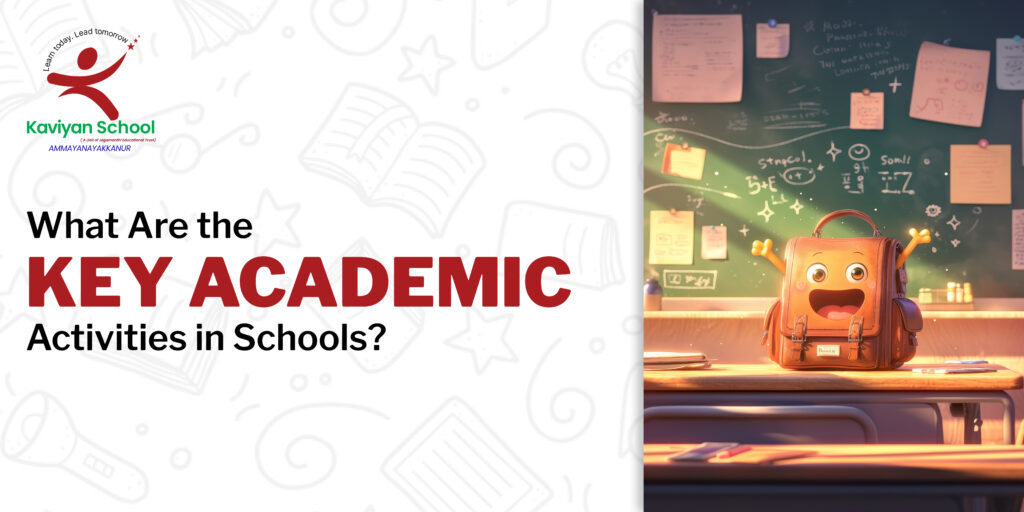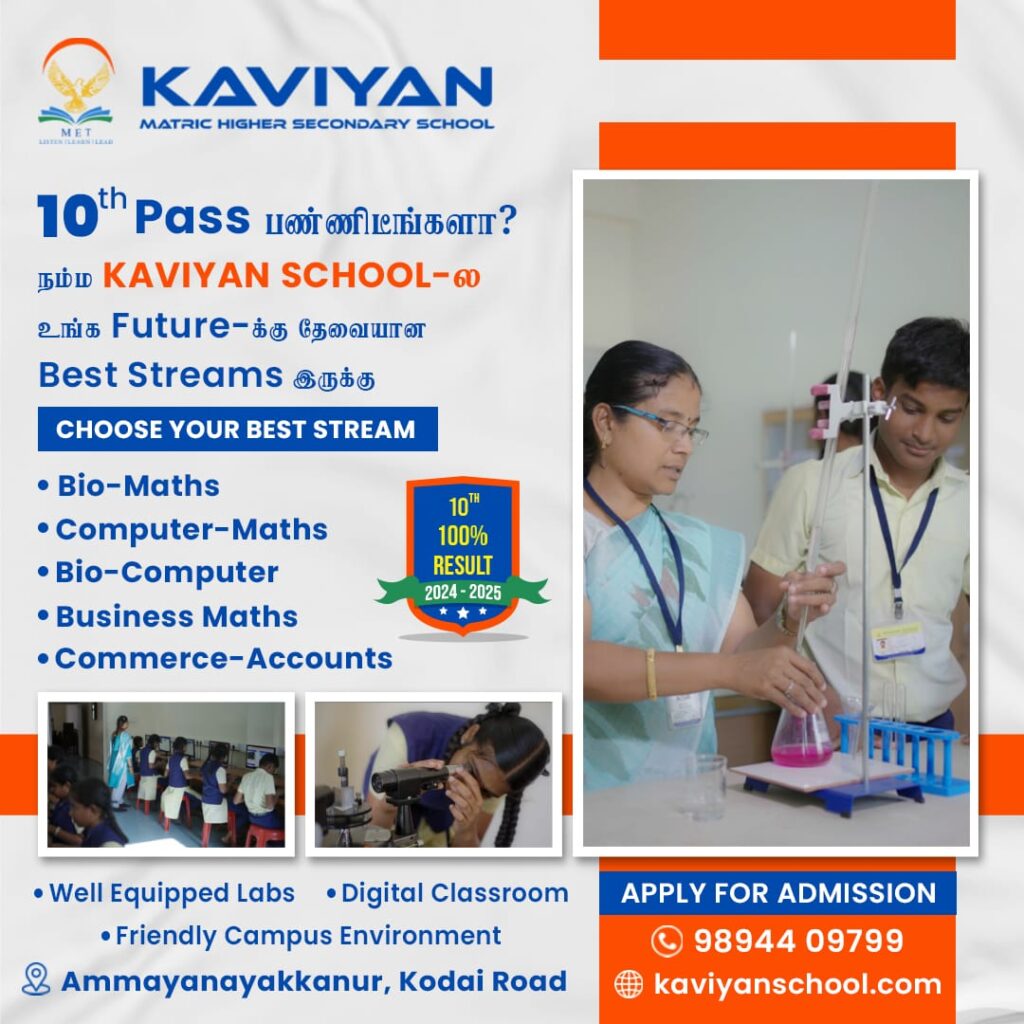
- Kaviyan Matric Hr Sec School Indira Nagar, Malayagoundanpatti Panchayat, Ammayanayakkanur Post, Pincode -624201


Introduction: The Role of Academic Activities in Schools
Academic activities are central to the educational experience. They help students understand concepts, build essential skills, and prepare for their future careers. These activities are structured to create a balanced learning environment where students actively engage with the material, teachers, and peers. In this blog post, we’ll explore the core academic activities that form the backbone of a student’s academic journey.
Classroom Learning: The Heart of Education
At the heart of any educational institution, classroom learning is where most knowledge acquisition takes place. The classroom environment is designed to encourage interaction between teachers and students, ensuring that learning is both effective and enjoyable. Typical classroom activities include:
- Lectures: Teachers introduce new concepts, explaining important topics in detail.
- Discussions: Students share their perspectives, debate ideas, and engage in problem-solving.
- Practical Experiments: Especially in science subjects, experiments are conducted to help students understand complex theories through hands-on experience.
These classroom activities help reinforce the theoretical knowledge taught in textbooks and make learning more interactive.
Unit Tests and Assignments: Measuring Progress
To evaluate how well students are grasping the material, schools conduct regular assessments such as unit tests, quizzes, and assignments. These assessments serve a dual purpose:
- Evaluating Understanding: Teachers assess students’ comprehension of the lesson to ensure they are on the right track.
- Preparation for Exams: These activities help students practice and review the material before their final exams, reinforcing what they have learned.
For example, after a lesson on algebra, a teacher may give a quiz to test the students’ ability to apply mathematical concepts to solve problems, helping them identify areas for improvement.
Group Discussions and Debates: Enhancing Communication Skills
Group discussions and debates are excellent ways to build communication and critical thinking skills. By participating in these activities, students learn to:
- Analyze topics from multiple perspectives.
- Develop arguments and solutions based on research and evidence.
- Present ideas clearly and confidently.
For example, a debate on the effects of social media allows students to research the topic, form arguments, and engage with classmates in a structured manner, boosting their public speaking skills.
Project-Based Learning: Hands-On Experience
Project-based learning encourages students to take on extended tasks that require a variety of skills. These projects are designed to connect classroom knowledge with real-world applications. For instance, a science project might involve creating a model of the solar system or conducting an experiment to demonstrate physics principles.
These projects also help students develop teamwork, time management, and presentation skills. A history project might require students to work in groups, researching a historical event and presenting their findings creatively. Such projects provide a holistic learning experience that extends beyond textbook knowledge.
The Impact of Academic Activities on Student Growth
Academic activities are fundamental to a student’s success. They promote not only intellectual development but also the growth of crucial life skills. Whether it’s through engaging in classroom discussions, completing projects, or preparing for assessments, these activities help students become well-rounded individuals. By participating in these activities, students are equipped with the skills they need to thrive academically and personally.
By fostering an engaging learning environment, schools can empower students to develop the knowledge and skills they need to succeed in their future endeavors.
Latest Post


High School Admissions: Class IX–XII Guide for Parents
May 21, 2025 No Comments

Middle School Admissions: What Parents Should Know
May 14, 2025 No Comments

How to Choose the Right School for KG to Class V Kids
May 8, 2025 No Comments

